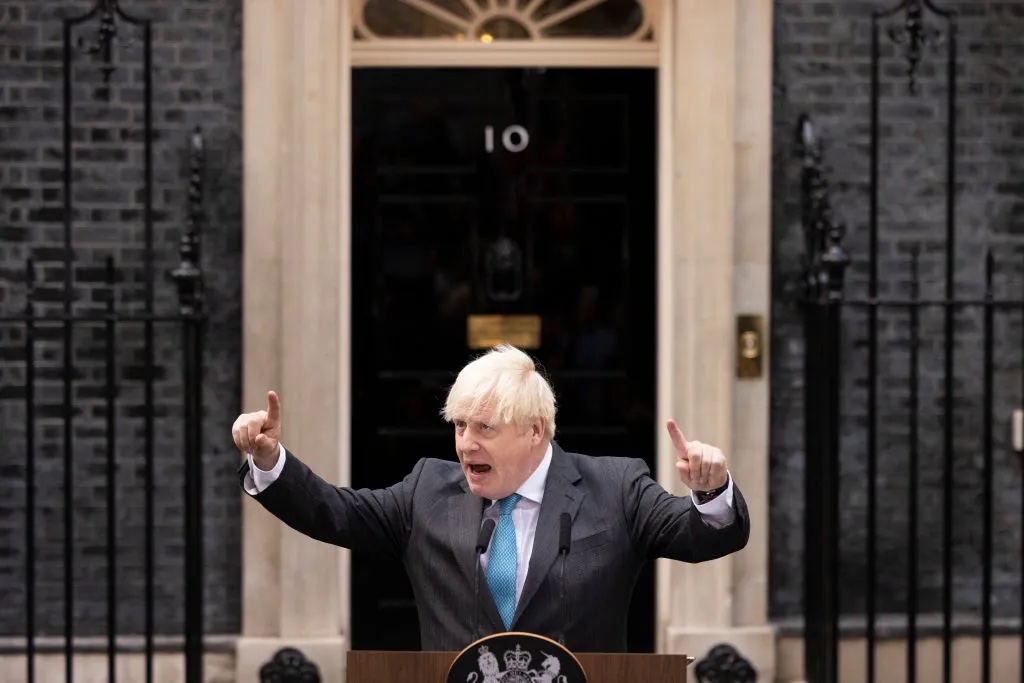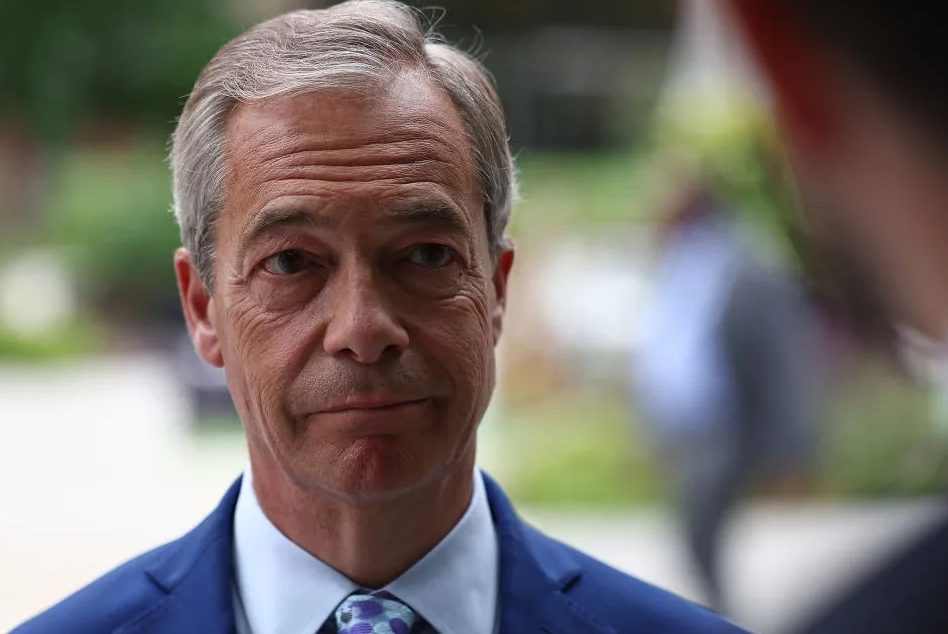At the New Yorker Festival party in mid-October, my astute colleague hardly needed the caution. But you know how at a discombobulating bash you seize gratefully on something to talk about. So as Matthew Goodwin and I rubbed elbows with the East Coast elite at the Old Town Bar in Manhattan (‘Look! It’s Ronan Farrow!’), I warned him about the following afternoon’s audience for our panel on Brexit.
They’ll be Democrats, I explained, and they’re hardwired to associate both the referendum and Boris personally with Trump. They’ve all been brainwashed by the New York Times, which portrays Brexiteers as a cross between the extras on The Walking Dead and the pitchfork-waving villagers in Frankenstein. The only thing that would motivate these folks to opt for a panel on Brexit is indignation. They’ll be 99.9 percent Remain. They may have visited the UK, and in a comical reverse-colonialism they have a strangely proprietary relationship to Britain, which has gone whacko without permission. They don’t necessarily know much about the UK or the EU, but they think they do. We won’t get anywhere with these people.
Such certainties in hand, I had to ask myself why I’d accepted this invitation in the first place. Maybe, like any American fiction writer, I was eager to suck up to the New Yorker, a high-prestige publication that pays more than bus fare for short stories. Maybe this gig was worth it for the swag alone; what other goodie bag would include Bose Bluetooth headphones? Maybe I was simply flattered to be asked, though I knew better: the organizers couldn’t think of anybody else. I’m one of the only loons in the New Yorker’s orbit who supports Brexit, and you could have counted its alternative candidates for this sacrificial-lamb appearance on the fingers of one hand with digits to spare.
Otherwise, agreeing to be a martyr for the ‘wrong’ side of the argument was, to borrow a beloved Remainer metaphor, an act of self-harm. For the event unfolded as I’d foretold. Whenever Matthew and I spoke, the audience turned to stone. That is, when the ingratiating Remainers Fintan O’Toole and Timothy Garton Ash actually paused for breath. Convinced that Americans are transfixed by a 10-minute harangue so long as it’s pitched in an adorable Irish accent, Fintan railed about the anarchic deregulatory spiral into which race-to-the-bottom Brexit Britain would surely sink. (Please, I prayed, don’t pull out that old chlorinated chicken again. Its bedraggled carcass has begun to reek.) Finally, I forced a word in edgeways: ‘Give me a break! The British invented bureaucracy! They love rules! What’s really depressing about a post-Brexit Britain is the likelihood that nothing will change!’ Now, even amid a Remainery audience in London, this point would have stirred a half-smile of recognition. In Manhattan? Brick wall.
At my debrief with friends in a nearby Greek restaurant, a rare booster confessed that he’d more than once wanted to applaud what I said, but then realized he’d be the only one clapping and thought better of it. A stranger from another table advanced on ours and exclaimed obscurely, ‘More heat than light!’ She’d attended the event, but was put out that the panelists were so impassioned. Would this woman have preferred commentators who conspicuously didn’t give a shit? Her remarks struck me as yet more evidence that, with that audience, Matthew and I couldn’t win.
I understand lefty New Yorkers’ uniform hostility to Brexit, but only up to a point. Yes, they blindly accept Timothy’s characterization of the EU as ‘the greatest achievement of liberal democracy in history’, and therefore as emblematic of their whole progressive world view. Yes, they compulsively see a foreign polity through the distorting prism of their own politics. Yet beyond that, I don’t get it. Americans would never vote to join a supranational behemoth whose laws would override their own in a million years. In 1776, Americans themselves fought a war to gain control over their own affairs. And while as a long-term UK resident I’ve inevitably got caught up in the Brexit debacle, I still don’t entirely fathom why American Americans care.
Now that I’m back in London, this sense of mystification has jacked up further. I’m embarrassed by this admission because after three and a half years of witnessing this circus up close and personal, I should really have a clue by now. But watching coverage of the surging mass of Remainer protesters raging towards Parliament Square at the weekend (as for the political chicanery Saturday onwards, I will temporarily reserve comment; anything could have happened by the time you read this), I was bewildered. Depending on the source, the crowd clamoring for a second referendum, or an outright reversal of the first one, numbered from the tens of thousands to a million; let’s just agree on ‘a lot’. Presumably civil when back home, purple-faced women screeched ‘Shame on you! Traitor! Scumbag!’ at their own representatives, who required a police escort from the Commons. What were these protesters really so worked up about?
Faux bafflement can be deployed as an argumentative device. Not this time. I genuinely do not grasp why so many Britons are apoplectic about leaving what used to be a trading bloc, and has morphed into an unwieldy, top-heavy and top-down bureaucracy that interferes with their daily lives right down to the tax on Superdrug tampons. I can see disagreeing with that characterization, and I can see preferring, on balance, to remain in the EU. But the emotion on the Remain side now borders on hysterical. It’s disproportionate to the issue at hand. It’s a little crazy.
Fine, there’s crazy on both sides — more heat than light. But this conflict has evolved beyond itself. In both the institutions of the state and the populace they feign to serve, Brexit has become a raw power struggle, about nothing less than who controls the country — and given their socioeconomic profile, Remainers are accustomed to having their way. The many arguments for and against — the backstops, the customs checks, the GDP projections — are immaterial. All that matters is who wins.
This article was originally published in The Spectator’s UK magazine. Subscribe to the US edition here.


























